UNC Charlotte and NCBiotech kick off North Carolina Life Sciences Week with the 2025 Biomedical Sciences Symposium
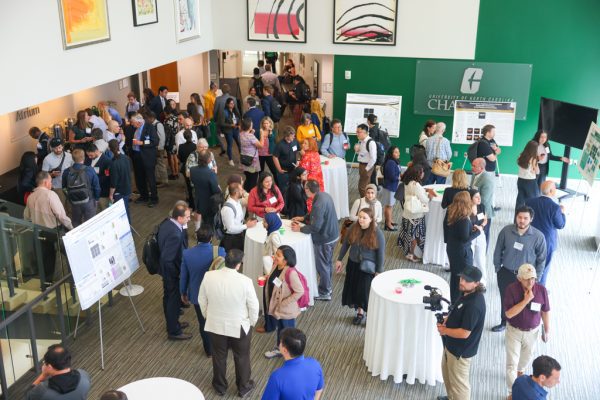
UNC Charlotte’s Center for Biomedical Engineering and Science (CBES) and the North Carolina Biotechnology Center (NCBiotech) hosted the 2025 Biomedical Sciences Symposium on Monday, Sept. 15 at the Dubois Center.
The event kicked off North Carolina Life Sciences Week as proclaimed by North Carolina Gov. Josh Stein and Charlotte Mayor Vi Lyles, bringing together over 300 representatives from 70+ institutions to share research and advance discovery across the state.
“We are proud to host this important symposium, and we are proud to fuel innovation and discovery in the state’s largest and most dynamic city,” said Chancellor Sharon Gaber in the opening remarks.
Researchers at UNC Charlotte are solving urgent, real-world problems and finding breakthroughs in cancer, gene therapies, drug detection, vaccine efficacy and water purification. As a nationally recognized leader in collaborative science, UNC Charlotte ranks third for new startup companies created and fifth for new patents filed, per research dollar.
Charlotte Is Leading Collaborative Science
“UNC Charlotte is no stranger to partnerships, and those partnerships have fueled our rise in rankings, research and enrollment,” said Vice Chancellor for Research John Daniels. “Our current active award portfolio is $247 million — and if you do the math on the multiplier effect — that has a billion-dollar impact right here in the Charlotte region and beyond.”
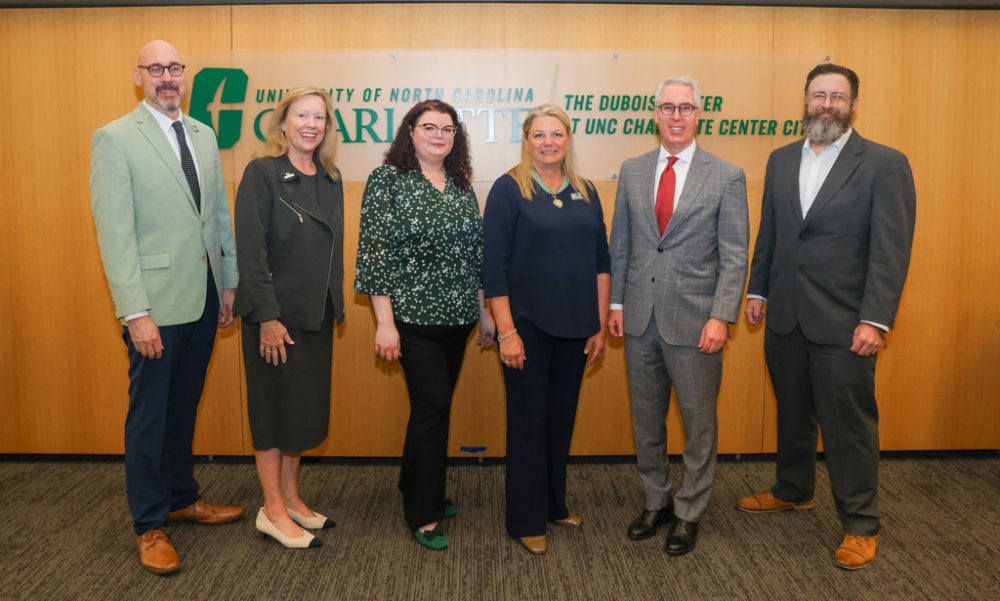
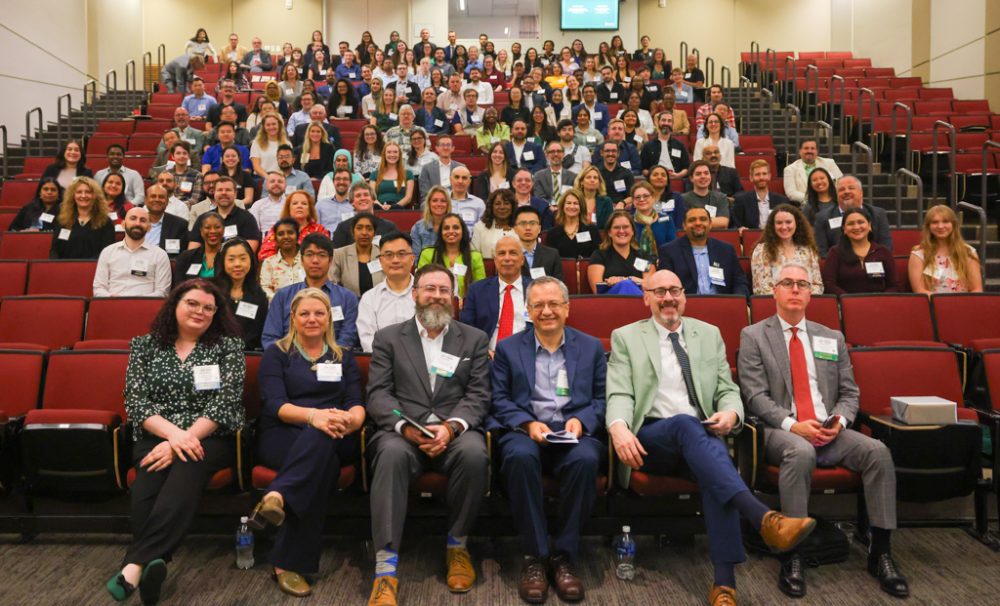
Tracy Dodson, COO and head of economic development at the Charlotte Regional Business Alliance, presented a snapshot into life sciences across the region during the morning session.
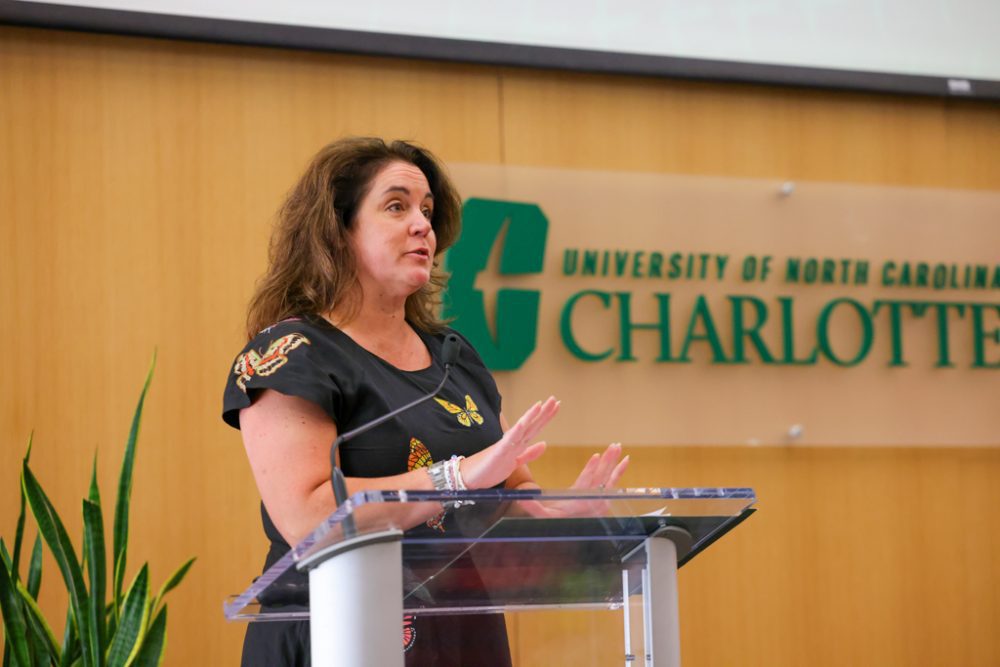
“60% of UNC Charlotte graduates live and work in the Charlotte region, which provides valuable talent to Charlotte’s growing corporate and life sciences community,” said Dodson, who earned a bachelor’s degree from UNC Charlotte in 1998. “Through innovative corporate partnerships, UNC Charlotte connects students with employers, which is why so many students choose to stay.”
As the academic anchor for the North Tryon Tech Hub, UNC Charlotte’s CO-LAB is providing a dynamic space for life sciences entrepreneurs and industry professionals to convene with faculty and students to develop practical, use-inspired solutions.
John Hardin, Ph.D., executive director of the North Carolina Board of Science, Technology & Innovation, showcased North Carolina’s ranking as second in the nation for employment in the life sciences industry and first in education and workforce training in the life sciences.
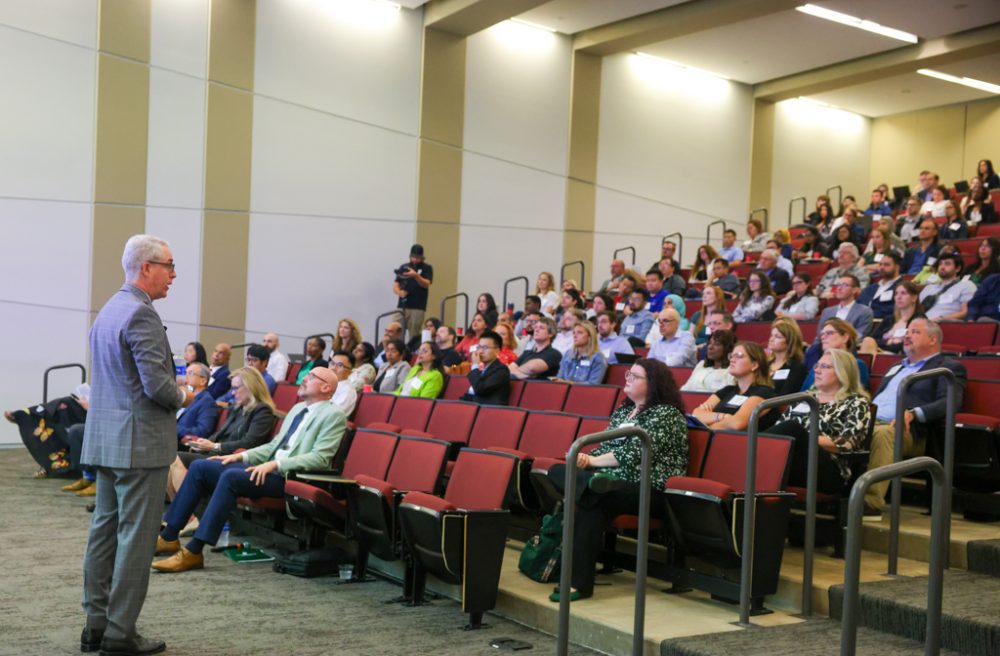
“This region is quickly becoming a hotbed of innovation for life sciences, and this symposium highlights that,” said Hardin. “There are more people at this symposium than ever before, and that’s not an accident, that’s a reflection of great things.”
Daniel Janies, Ph.D., Carol Grotnes Belk Distinguished Professor of Bioinformatics and Genomics at UNC Charlotte and director for the Center for Computational Intelligence to Predict Health and Environmental Risks (CIPHER), presented the Center’s research aiming to prevent the next pandemic.
CIPHER brings together cross-disciplinary expertise in computer science, bioinformatics, software and information systems, biological sciences, mathematics, geography, public health, data sciences, education and communications.
The symposium’s mid-morning session featured more insightful presentations, beginning with Brad Bower, Ph.D., chief AI and data science officer at the National Institute of Biomedical Imaging and Bioengineering (NIBIB), part of the National Institutes of Health (NIH), who presented the keynote “Bench to Bedside: Translating Trustworthy AI.”
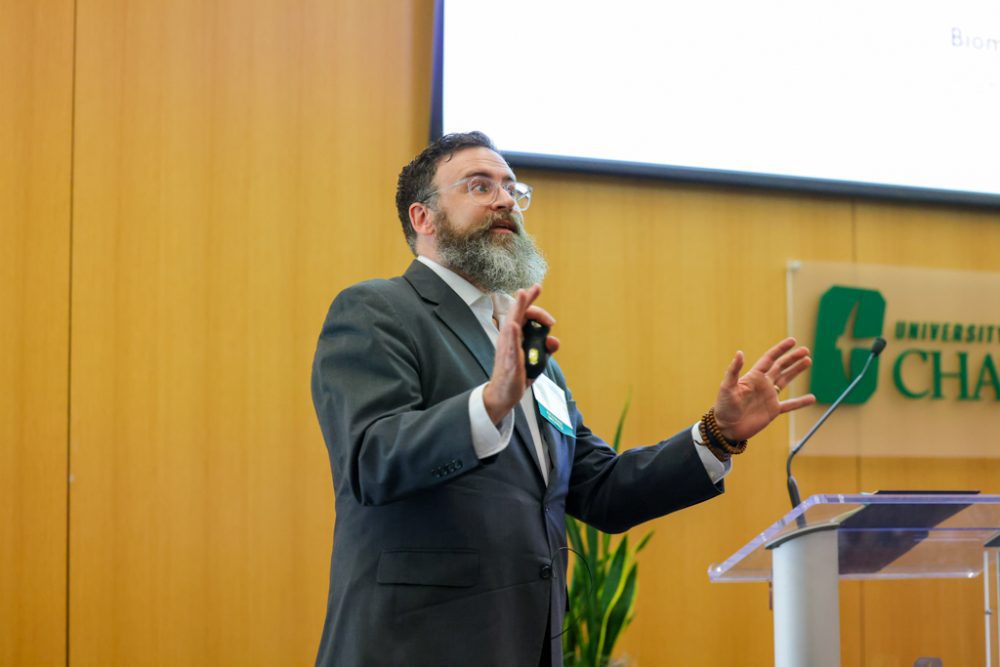
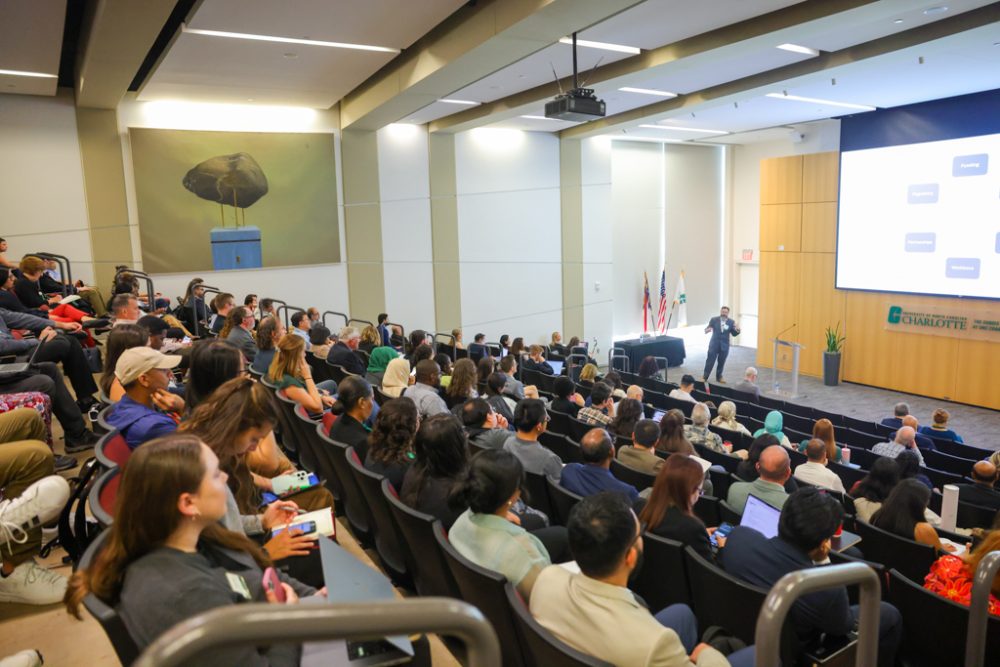
Continuing in the theme of AI, Metin Gurcan, Ph.D., from the Wake Forest University School of Medicine discussed its role in medical imaging. Wrapping up the plenary session, Rob Keynton, Ph.D., dean of the William States Lee College of Engineering, spoke about the process of distilling bioengineering research into innovation.
Researchers and students from universities and biotechnology companies across North Carolina presented their research throughout the afternoon. The event featured 113 research projects, including 65 poster presentations and 40 oral presentations. Eleven prizes were awarded to the poster presenters, with seven UNC Charlotte students taking home awards.
“The symposium successfully brought together life sciences experts to showcase the current research and innovation taking place across the region. The impressive plenary speakers drew an enthusiastic crowd, as well as a wide one, representing so many different institutions,” said Bernadette Donovan-Merkert, founding dean of the Klein College of Science. “I loved seeing our students’ pride as they shared their work, and I’m excited for the future collaborations this event will spark.”
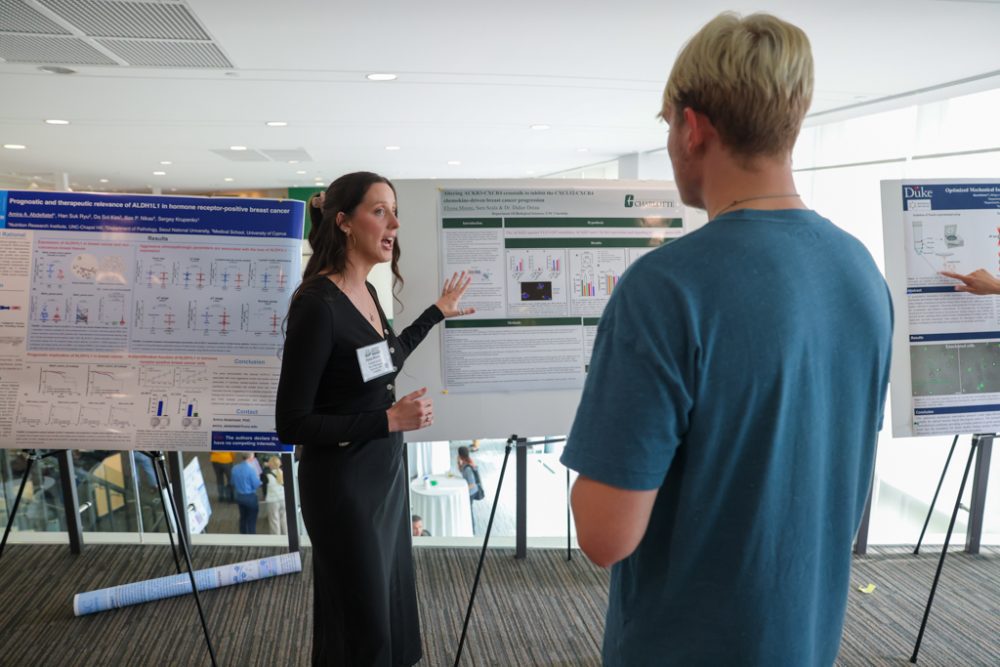
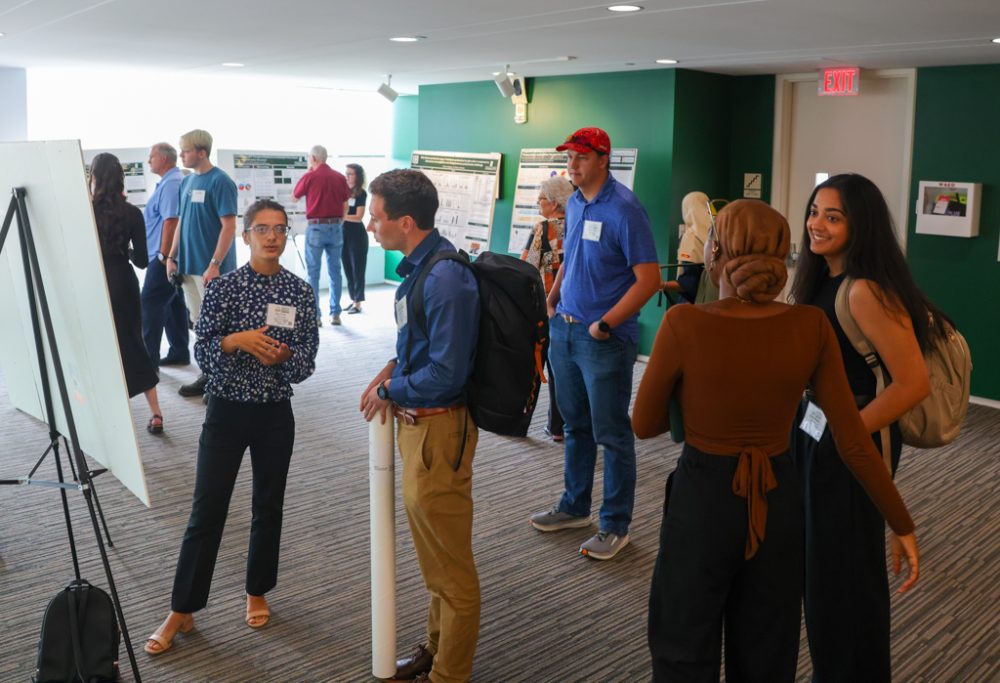
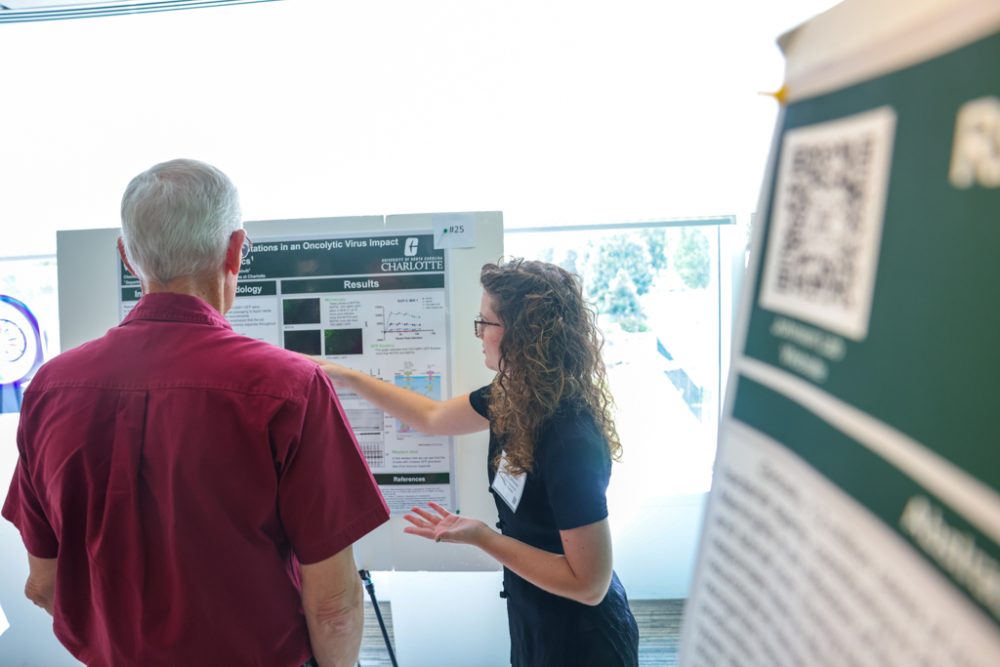
UNC Charlotte faculty members from the Klein College of Science, the William States Lee College of Engineering and the College of Computing and Informatics also presented during the afternoon session, sharing research spanning the life sciences.
Topics included:
- Cancer and translational medicine
- AI and medical imaging
- Regenerative medicine
- Host-pathogen interactions and health/medicine
- Infectious disease and health
- Biomaterials and translational medicine
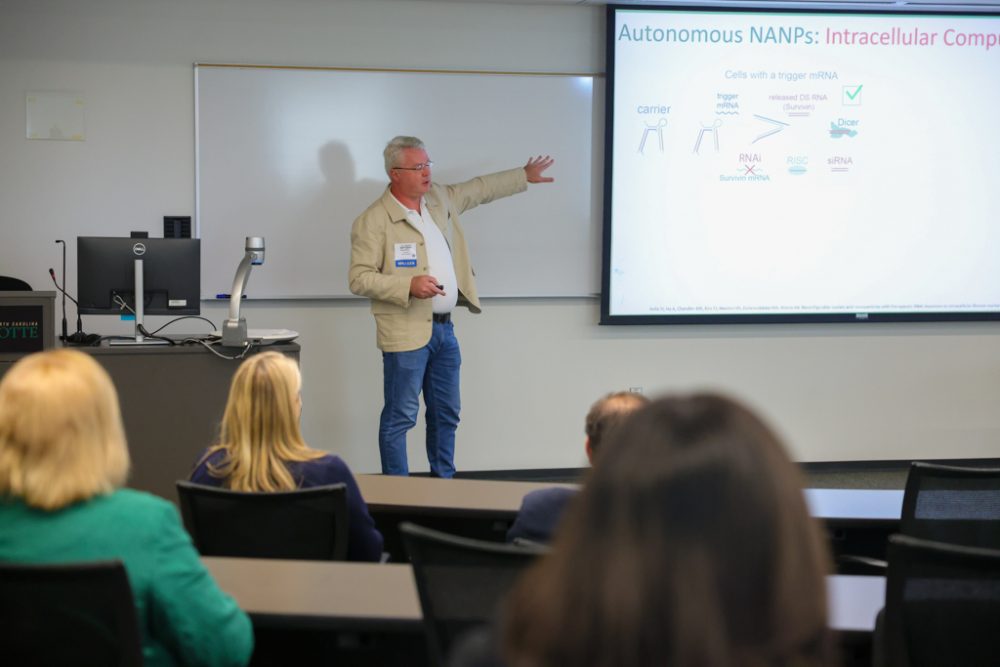
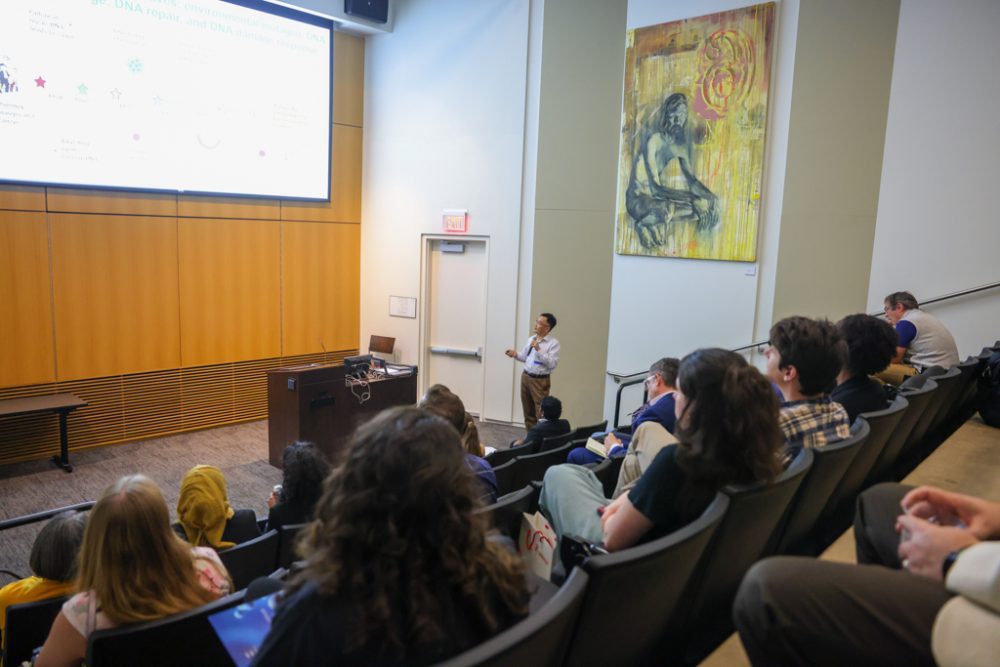
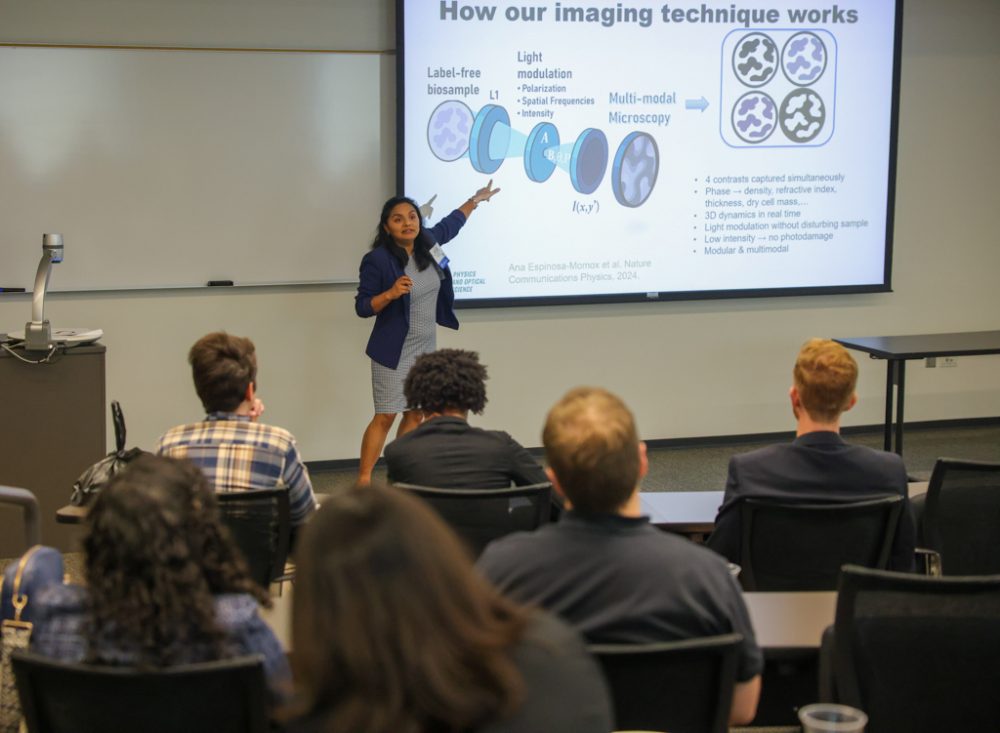
The symposium was made possible due to the efforts of the event organizers Christine Richardson, Ph.D., director of CBES and professor and chair of the Department of Biological Sciences and Megan Mitchem, M.S., as well as UNC Charlotte faculty and staff members Didier Dréau, Juan Vivero-Escoto, Ahmed Hemby, Ahmed El-Ghannam, Taufiquar Khan, Don Jacobs, Dan Janies, Brittany Johnson, Brigid Mullany, Adam Reitzel, Nigel Zheng, Sharon Bullock, Anika Green, Lucy Chen, Lisa Johnson and David Lloyd.
Special thanks to the 2025 symposium sponsors
- North Carolina Biotechnology Center
- UNC Charlotte Division of Research
- SARSTEDT Group
- Carolina BioOncology Institute
- BioCytics Inc
- Cytiva
- Thermo Fisher Scientific
- American Society for Biochemistry and Molecular Biology
- Hunt Optics & Imaging
- UNC Charlotte Office of Undergraduate Research